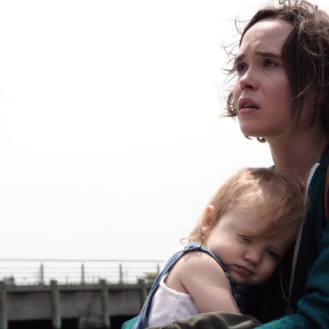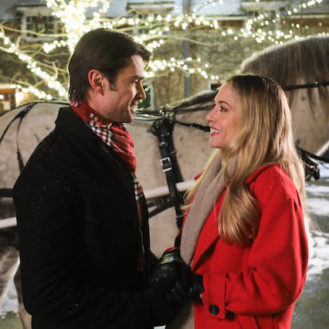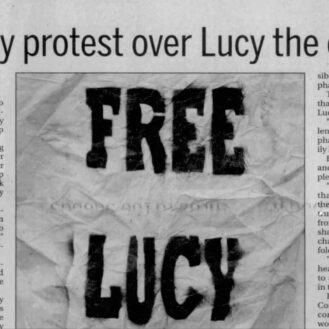After seeing Vince Offer’s appalling InAPPropriate Comedy and Seth Gordon’s despicable Identity Thief, I thought I’d be done using “the worst” to describe any other film released this year. That is, until I saw Dev Khanna’s Fondi ’91.
Don’t get me wrong. Offer’s racist cinematic tirade and Gordon’s insufferable comedy are still the worst films 2013 has given audiences, but this crummy coming-of-age tale about a young man’s week long soccer getaway in Fondi, Italy could be the worst of its kind and is certainly going to be getting comfy next to Offer’s and Gordon’s endeavours.
Khanna’s drama isn’t intentionally hateful or mean-spirited. I truly believe Dev Khanna was out to make the type of movie about young teenage hood that could be compared to Stand By Me. But, what the director/co-screenwriter has made instead is an amateur stab that is inept in every way possible, pushing its goal so vastly out of reach.
Unlike Stand By Me, Fondi ’91 skates along without having too much of a plot – letting the events play out as the characters make rational or irrational decisions that they’ll remember for the rest of their lives. The film follows Anil (played by Degrassi’s Raymond Ablack who looks as if he’s been stranded at sea) and the rest of his soccer team as they travel to Fondi to compete in a high-class tournament.
The rest of the main players are played by Chris Periera, Kyle Kirkpatrick, and Thomas Wesson. The four are supposed to have a rollicking “boys will be boys” camaraderie that suggests strong teamwork during their games and a close friendship outside the field. But, everyone appears to have met each other minutes prior to shooting the scene, followed by being knocked unconscious after Khanna yells “cut!”, erasing their memory, and repeating the awkward back-and-forths all over again.
There was not one moment in Fondi ’91 where I was convinced the production had a clue. It’s harsh, it’s blunt, but I can’t think of another way to put it. The actors – young and old – all look and act as if no one’s given them a clear idea of what the film’s intentions are. They’ve been given directions such as “walk down this street”, “drink in the culture”, and “look as if you’re heart has been ripped out from you”, but no one knows as to why they should be walking down the street, drinking in the culture, or feeling devastated by the life-altering climactic beats.
There are also odd moments in the screenplay where even the actors look confused as to how their lines or motivations have been written. This is the type of movie where two characters look at the night sky- which is littered with hundreds of stars – and know exactly which star the other is pointing to when they’re told to look up. It’s the type of movie where if someone doesn’t have a clear view of something, they say out loud, “I’m going to get a closer look. I’m going to go closer.” It’s the type of movie where almost every scene starts with someone walking into the frame, where characters don’t notice other people walking closely behind them, and violent attacks are accompanied by the same sound effect with battered results being as quickly brushed off as they are initiated.
Fondi ’91 deliberately takes an anti-mainstream approach to how each issue gets resolved. Where the average film may have proper conclusions and its end tied into a nice bow, Khanna and his co-writer A. Sinha (including André Bharti, Lenny Foreht, and Khanna getting story credits) want to add elements of realism, suggesting that trial and error is a big component of growing up. The problem is Fondi ’91 applies that type of thinking to every scenario, meaning nothing gets wrapped up as it should. Even if two characters talk about a specific turning point, the discussions boil down to someone telling the other to “leave it alone.” These sloppy choices lead to an outrageously disappointing ending to the film’s supposed climax.
The film may be set in Italy, but it does a poor job capturing a worthwhile representation of the culture. Fondi ’91 tries to capture romance that lingers in the crisp air with scenes set in sparsely occupied town squares in front of glistening fountains, but the execution feels more set up and contrived than heart-warming.
As it may be hard to believe, I hate laying into a smaller film such as this and berating all who were involved who probably had no reason to cause a ruckus. What I hate more is stating zero reasons as to why it’s a worthwhile watch. Maybe it’s because I feel embarrassed for Fondi ’91 and for all who were involved with its ill-fated production. This is a prime example of a movie that needed more rehearsals and more pre-production planning before heading into its slapdash shooting.
Trial and error may be a big component to growing up, but that logic could easily apply to filmmaking too. Let’s all hope Khanna and crew have much better luck next time.





Leave a comment